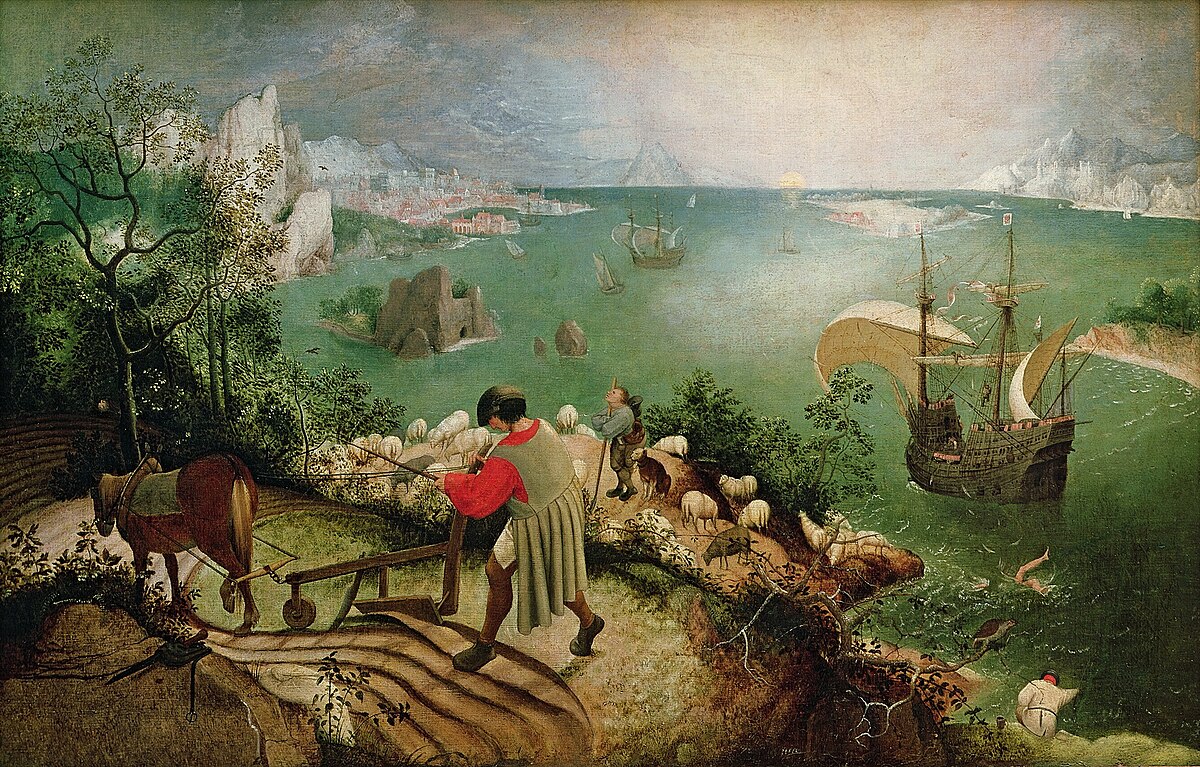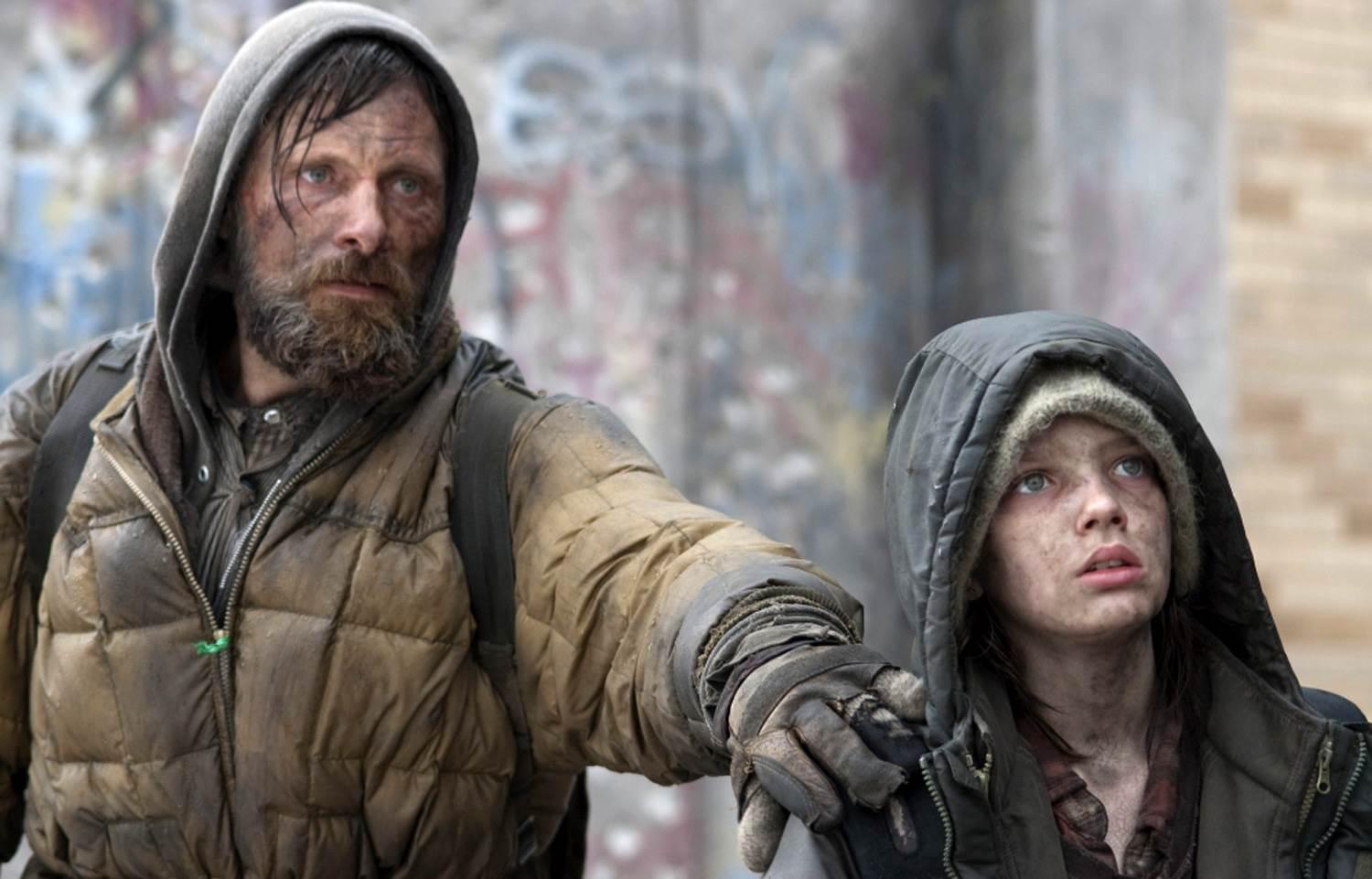Ms. Peterson September 27, 2019
Blog #11
Aim: How can we create and define the value of ancient mythology in contemporary society?
Today in class, we worked in our groups to read aloud two poems: "Musee des Beaux Arts" by W. H. Auden (1938) and "Landscape with the Fall of Icarus" by William Carlos Williams(1962). Both of these poems are a continuation of our lesson on September 26, 2019, because they refer back to the story of "Daedalus" in the novel Mythology by Edith Hamilton and the lessons that can be deduced from the story. After reading aloud, we annotated both poems together as a group directly on the document by discussing the questions of stylistically, how do they differ and do the styles change the meaning? We also made connections between the poems and the painting, Landscape with the Fall of Icarus by Pieter Bruegel the Elder by asking ourselves the question of what sentiments do the two poems echo in respect to Breugel's painting? Finally, we conversed about how the poems resonate any relevance to the original story of Icarus in "Daedalus" and who is the monster in the poems?
Reflection
Notes for the Day:
We learned about Greek Theater Terms applied to Mythology. For example, "hamartia" means a character flaw or weakness or an error in judgment of the protagonist of a Greek tragedy. The term is derived from the Greek word hamartanein, which means to make a mistake. The first ever writer to use this term was Aristotle, in The Poetics. Another term we learned was "hybris" or "hubris," which is defined as great pride or arrogance(a character flaw or hamartia) of a protagonist in Greek drama. Having pride was considered a sin because it placed excessive emphasis on the individual will which in effect weakened the importance of the will of the state as well as endangering the entire community. Since pride can undermine one's judgment, one can be unwilling to accept guidance from someone wiser and therefore, lead to poor decisions while causing someone to act incautiously. After being informed of these two definitions, we came to the conclusion that the difference between the two is the fact that hamartia is the tragic flaw of the protagonist in a literary tragedy while hubris is containing an overwhelming amount of pride or arrogance that may lead to the downfall of the protagonist in Greek drama.
I used what I learned in today's lesson by applying these new concepts of "hamartia" and "hubris or hybris" to the story of Daedalus and Icarus. The story tells of Daedalus warning his son, Icarus, to keep a middle course over the sea using his fake glued wings made by Daedalus himself. Unfortunately, Icarus tries to reach his goal of escaping the Labyrinth too quickly and fails to listen to his father's wisdom that if Icarus flies too high, the sun might melt the glue and the wings drop off. As a result, Icarus' wings come off and he drowns in the sea. In the story, Icarus has hubris because he let the power and free will get to his head which eventually led to his demise. I learned this because by studying a character's weaknesses, readers are able to see character development throughout the course of the story as well as specific reasons for their demise which can be served as a lesson to the readers in the real world. After learning the effects of having too much ego and dignity as a weakness, I have taken away the lesson of being balanced and mindful when it comes to setting goals for the individual and the community as a whole. I also practiced annotating written works and the importance of annotations when it comes to understanding the text. I learned that annotations allow us to highlight the phrases or words crucial to the meaning of the text. For example, I underlined the phrase "Had somewhere to get to and sailed calmly on" in the poem "Musee des Beaux Arts" by W. H. Auden(1938). After having a conversation with my peers, we made an interference that Auden is trying to send to message to the reader that in life, everyone has their own responsibilities and life must continue, as depicted in the painting, Landscape with the Fall of Icarus by Pieter Bruegel the Elder. Moreover, the drowned man in the sea which represents Icarus is insignificant to the daily lives of settlers in the painting and the death of this character doesn't change the fact that life will continue even when we die. Interacting actively with the text through annotations allow us to make conclusions based on the text as we read it as well as jot down questions we have that we can later ask the teacher to explain in depth. I will use what I learned by constantly using annotations in all the written works I come across to enhance and organize my thoughts about the text and refer back to the text's significance without having to read it again in its entirety.
In our classroom discussion, we said that the first poem, "Musee des Beaux Arts" by W. H. Auden (1938), is loaded with more imagery such as "...there always must be/Children who did not specially want it to happen, skating/On a pond at the edge of the wood..." (7-9). Also, in the first poem, the reader can envision what the poet is talking about while the "Landscape with the Fall of Icarus" by William Carlos Williams(1962) contains shorter lines in length and is more minimalized when expressing the poet's message in order to get to the point and give the reader an idea of what the course of events was in the death of Icarus. After discussing the questions in our group, we came to the final idea that both poems have the same meaning of humankind having the potential to be selfish at times, focusing on oneself as described in the definition of hubris or hybris as expressed in Icarus' carelessness and disregard to his father's advice and the bystanders inattention to their surroundings which in this case, would be Icarus drowning near them. The poems echo the sentiments of unconcern and neglection of Icarus' tragic fall from the sky as the farmers may have been too busy caring for their animals to notice the events happening around them. The first poem reinforces the idea that the young are more involved in risky endeavors as shown in the original story of Icarus who lets the idea of strength and freedom from the maze impact his good judgment. The monster described in the poems is possibly Icarus or those that succumb to the devastating influence of overconfidence and individuality over the common goals and welfare of a group.

Landscape with the Fall of Icarus by Pieter Bruegel the Elder
W. H. Auden (1938)
About suffering they were never wrong,
The old Masters: how well they understood
Its human position: how it takes place
While someone else is eating or opening a window or just walking
dully along;
How, when the aged are reverently, passionately waiting
For the miraculous birth, there always must be
Children who did not specially want it to happen, skating
On a pond at the edge of the wood:
They never forgot
That even the dreadful martyrdom must run its course
Anyhow in a corner, some untidy spot
Where the dogs go on with their doggy life and the torturer's horse
Scratches its innocent behind on a tree.
In Breughel's Icarus, for instance: how everything turns away
Quite leisurely from the disaster; the ploughman may
Have heard the splash, the forsaken cry,
But for him it was not an important failure; the sun shone
As it had to on the white legs disappearing into the green
Water, and the expensive delicate ship that must have seen
Something amazing, a boy falling out of the sky,
Had somewhere to get to and sailed calmly on
Landscape with the Fall of Icarus
William Carlos Williams (1962)
According to Brueghel
when Icarus fell
it was spring
a farmer was ploughing
his field
the whole pageantry
of the year was
awake tingling
with itself
sweating in the sun
that melted
the wings' wax
unsignificantly
off the coast
there was
a splash quite unnoticed
this was
Icarus drowning













